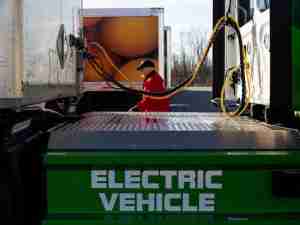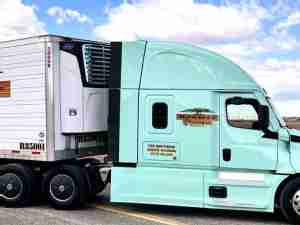Truck strike crimps Brazil food, fuel supplies, soy exports
By: Reuters | Feb 24 2015 at 04:32 PM | Intermodal | Ports & Terminals
Truck drivers protesting high fuel prices for a seventh day interrupted supplies of diesel and raw materials across Brazil's farm belt and threatened to hold up grains exports at ports in the midst of a record harvest.
The strike started as an isolated protest but has now spread to at least 10 states. President Dilma Rousseff has called an emergency meeting to seek ways to defuse the demonstrations before they hurt exports.
Brazil, a farming powerhouse that relies heavily on commodities exports, is weathering an economic downturn, which has been exacerbated by weaker global prices for crops such as soybeans, corn and sugar. Traders said soy exports were offered at a discount to attract buyers wary of long delays in ship loading.
The strike has led to a shortage of diesel fuel in parts of Brazil's bountiful center-west grains belt. Some farmers have temporarily halted soybean harvesting machinery.
"We could end up losing some of the harvest," Antonio Galvan, president of the Sinop Farmers Union in top soybean producing state of Mato Grosso, told Reuters. "Without diesel, you can't do anything."
The strike was also starting to affect truck traffic and grains deliveries at Brazilian sea ports, but so far shipments remained on schedule.
Paranagua, Brazil's No. 2 port, said it had sufficient grain stocks to fill ships now loading, but worried a sharp drop in soy arriving by truck would disrupt the normal flow of vessels if the protest continued.
"On Tuesday, only 45 trucks were in the waiting area," said a representative at Paranagua. "Normally, there are 900 trucks in the morning."
Soy futures prices spiked on Tuesday. Traders cited the protests, among other reasons.
Officials at Brazil's main port of Santos reported no disruption in grain deliveries or loading Tuesday. Local ports are gearing up for March through August, high-traffic months for soy, corn, sugar and coffee exports.
Truckers started restricting the flow of goods along BR 163, the main highway running through Mato Grosso, on Feb. 18. They are protesting high fuel and toll prices, poor roads and changes to rules governing trucking companies and independent drivers.
The spontaneous spread of the demonstrations without organized help from unions has complicated state and federal government efforts to negotiate with protesters. So far, isolated attempts by the government have not been fruitful.
"There is no sign the blockage in Sorriso (Mato Grosso) and the other towns in the state is ending," said a representative for Rota do Oeste, the consortium that operates the BR 163 highway on Tuesday. "Trucks are not getting through." (Reuters)









